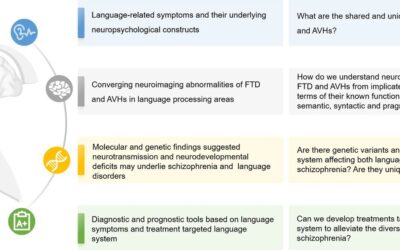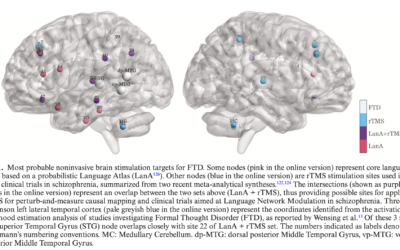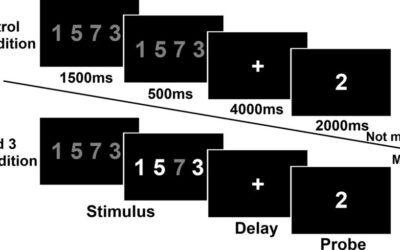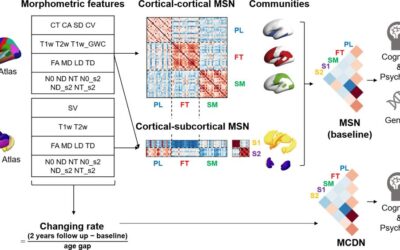Featured Posts
No Results Found
The page you requested could not be found. Try refining your search, or use the navigation above to locate the post.
Older posts
On Psychiatric ‘Signs’
Clinical assessments in psychiatric practice mostly rely on verbal report of symptoms by individuals who experience them. Some of these self- reports are corroborated by family members or other associates, providing information required to formulate the problem that...
Is the brain ageing faster in schizophrenia?
There is some evidence to suggest that the brain may be ageing faster in schizophrenia. As individuals with schizophrenia have a greater risk of developing age-related diseases such as Alzheimer's disease and cardiovascular disease, the idea of accelerated brain...
Clinical snippet: Genetics and prescribing antipsychotics
We rarely use genetic testing while treating first-episode psychosis, as there are no directly relevant genetic tests for diagnosis or treatment selection One specific situation where genetic testing may help is when we face the issue of poor response to treatment or...
Mike earns a prefix!
Mike successfully defended his PhD earlier this month. Mike started as a Research Associate with us and quickly became an indispensable 'family' member of the PEPP team at Victoria Hospital, London, ON. He led the recruitment efforts for our CIHR supported TOPSY study...
Charlotte completes her Master’s thesis!
Faults in our Folds: Gyrification and Schizophrenia
Schizophrenia is a neurodevelopmental illness that is thought to originate early in life, when the brain's gyrification (folding) process is at its peak. Some studies have suggested that gyrification may also be reduced in schizophrenia, particularly in early...
Psychosis messes with our language
As one person with lived experience of psychosis put it, "psychosis messes with our language skills, like being able to talk and get what other people are saying". There are two specific things that can happen with schizophrenia that have to do with language: formal...
Connections that make us speak
Schizophrenia is a mental health condition that is characterized by problems with thinking and communication. One specific aspect of this, called Formal Thought Disorder (FTD), refers to the loss of structure in our thought process that manifests in speech. Many...
The mental workspace in schizophrenia
Working memory is a type of short-term memory that allows us to temporarily store and manipulate information. It is often referred to as the "mental workspace" as we hold the information that we are currently using in our working memory. For example, if you are...
Pre-adolescent brain and mental health
During preadolescence (ages 9 to 12), notable deviations from the expected trajectory of brain structure and function may occur and be linked to psychiatric disorders. With collaborators at the Institute of Science and Technology for Brain-Inspired Intelligence, Fudan...












